Beyond the Peanut: Food Inspired by Carver
| Written by | Debra A. Reid |
|---|---|
| Published | 3/25/2021 |
Beyond the Peanut: Food Inspired by Carver
| Written by | Debra A. Reid |
|---|---|
| Published | 3/25/2021 |
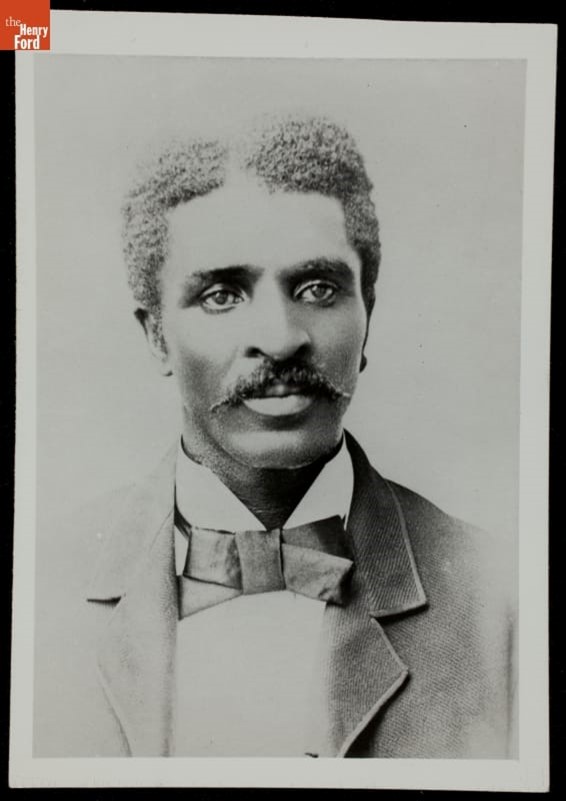
George Washington Carver's Graduation Photo from Iowa Agricultural College and Model Farm (now Iowa State University), 1893 / THF214111
George Washington Carver and Food
George Washington Carver (1860s–1943) was born near the end of the Civil War in Missouri. He studied plants his entire life, loved art and science, earned two agricultural science degrees from Iowa State University, and shared his knowledge broadly during his 45-year-career at Tuskegee Institute. He urged farm families to care for their land. Today we call this regenerative agriculture, but in Carver’s day it amounted to a revolutionary agricultural ethic.
Carver’s curiosity about plants fueled another revolution as he promoted hundreds of new uses for things that farm families could grow and eat. Cookbooks inspired him to adapt, and he worked with Tuskegee students to test and refine recipes. Then he compiled them in bulletins that stressed the connection between the environment and human health.
Today, our chefs at The Henry Ford are inspired by Carver’s dozens of bulletins and hundreds of recipes for chutneys, roast meats, salads, and peanut-topped sweet rolls.
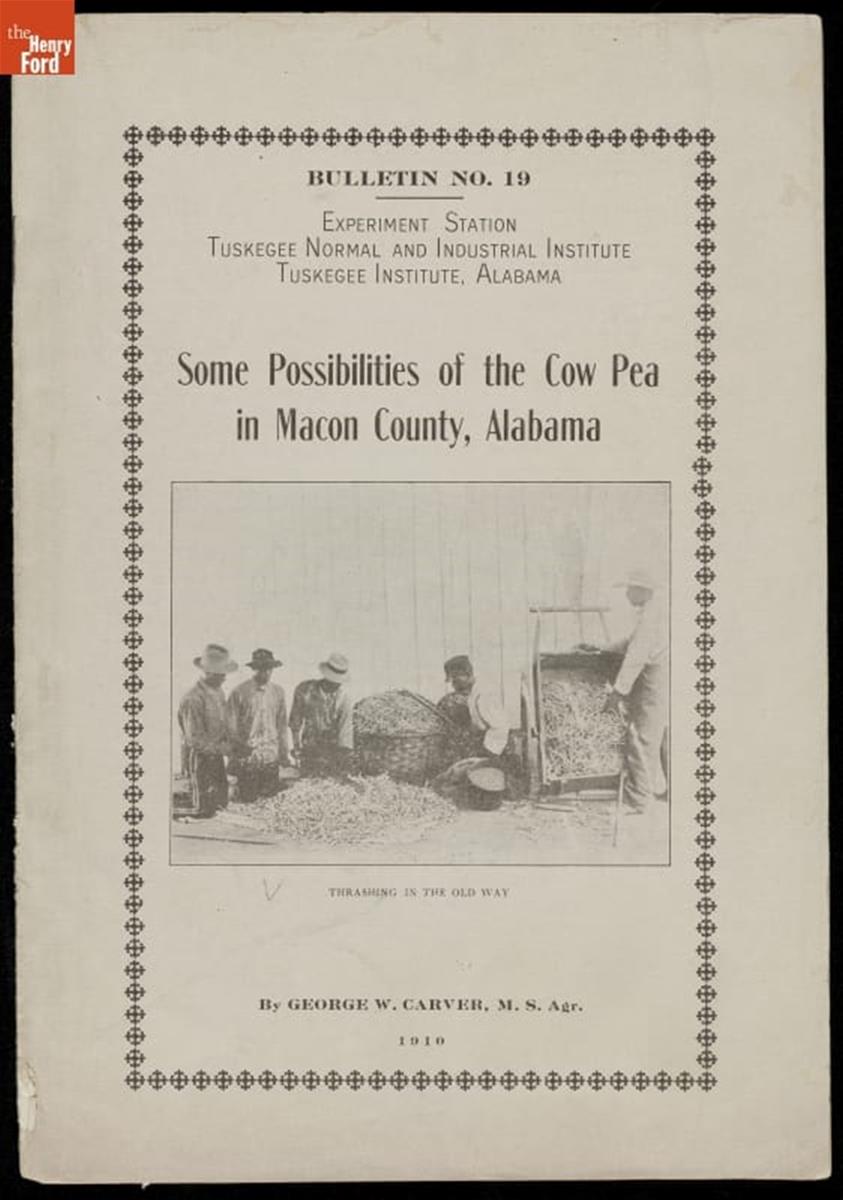
Some Possibilities of the Cow Pea in Macon County, Alabama, a 1910 bulletin by Carver featuring recipes. / THF213269
Developing Modern Carver-Inspired Recipes
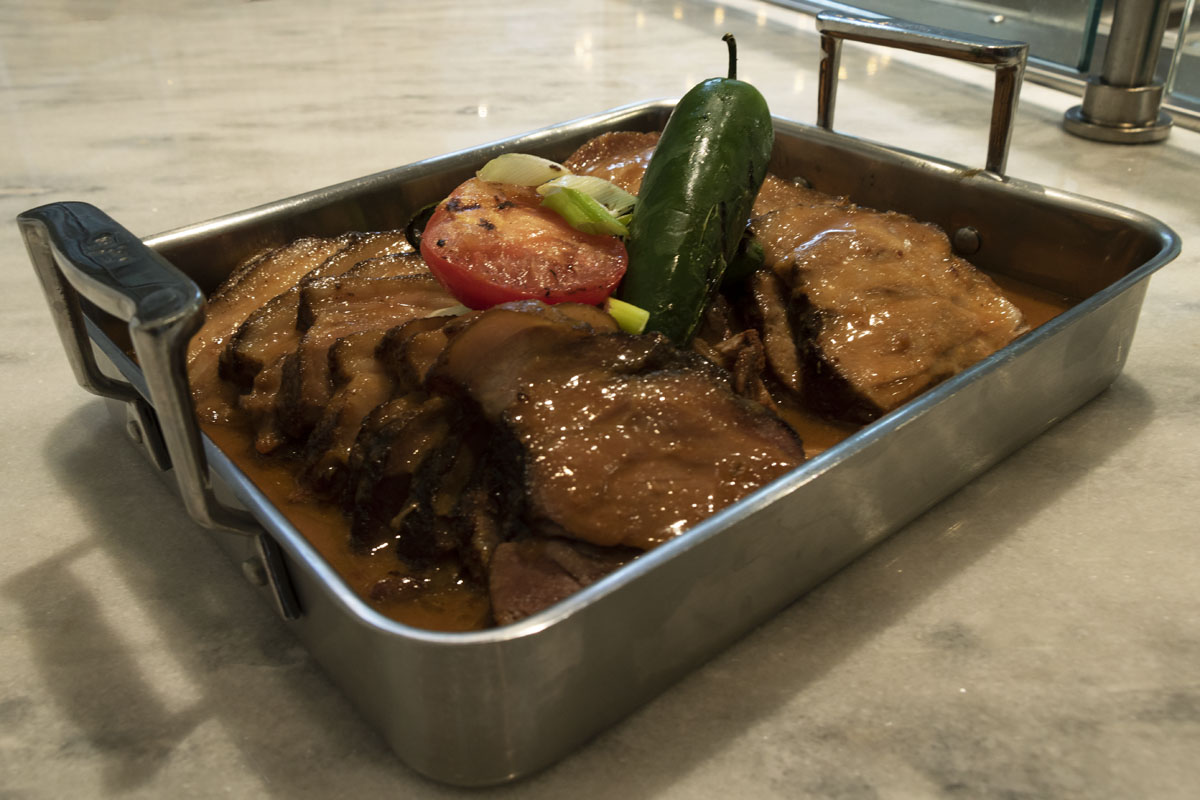
All Natural Pork with Peanut Plum Sauce at Plum Market Kitchen.
Carver is known to most of us for his many uses for the peanut. The Henry Ford’s culinary team looks to go beyond that, knowing that there is so much more to his legacy. Cultural appropriation is a hot topic in the world of food service today, but as a public history institution, we recognize that food is culture, and we are committed to authentic representation of a variety of food traditions. We are constantly collaborating and developing new recipes in consultation with our curators, who provide expert understanding and context. Part of the mission that drives our chefs is to understand the full story, and to help all our guests complete that experience as well.
Carver-Influenced Menu at Plum Market Kitchen
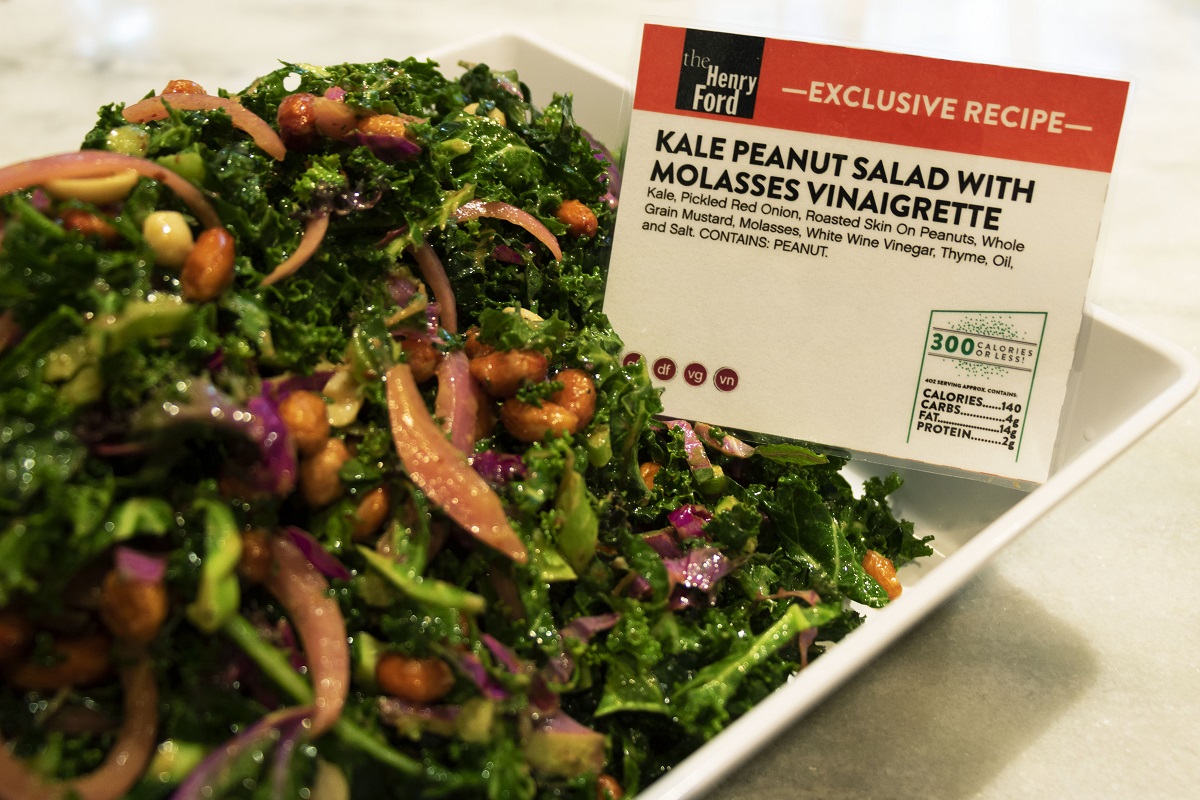
Kale, Roasted Peanut, and Pickled Red Onion Salad with Molasses Vinaigrette at Plum Market Kitchen
Many aspects of Carver’s legacy are woven into a modern menu at Plum Market Kitchen at The Henry Ford. Today, the ideas of all-natural, healthy, and organic have become “tag lines” to sell you food. However, for Carver, and for Plum Market Kitchen, these have always been a driving ideology. Together, The Henry Ford and Plum Market Kitchen have taken inspiration from many of Carver’s recipes—always looking to honor and continue his legacy.
Digging Deeper into Carver’s Legacy at A Taste of History
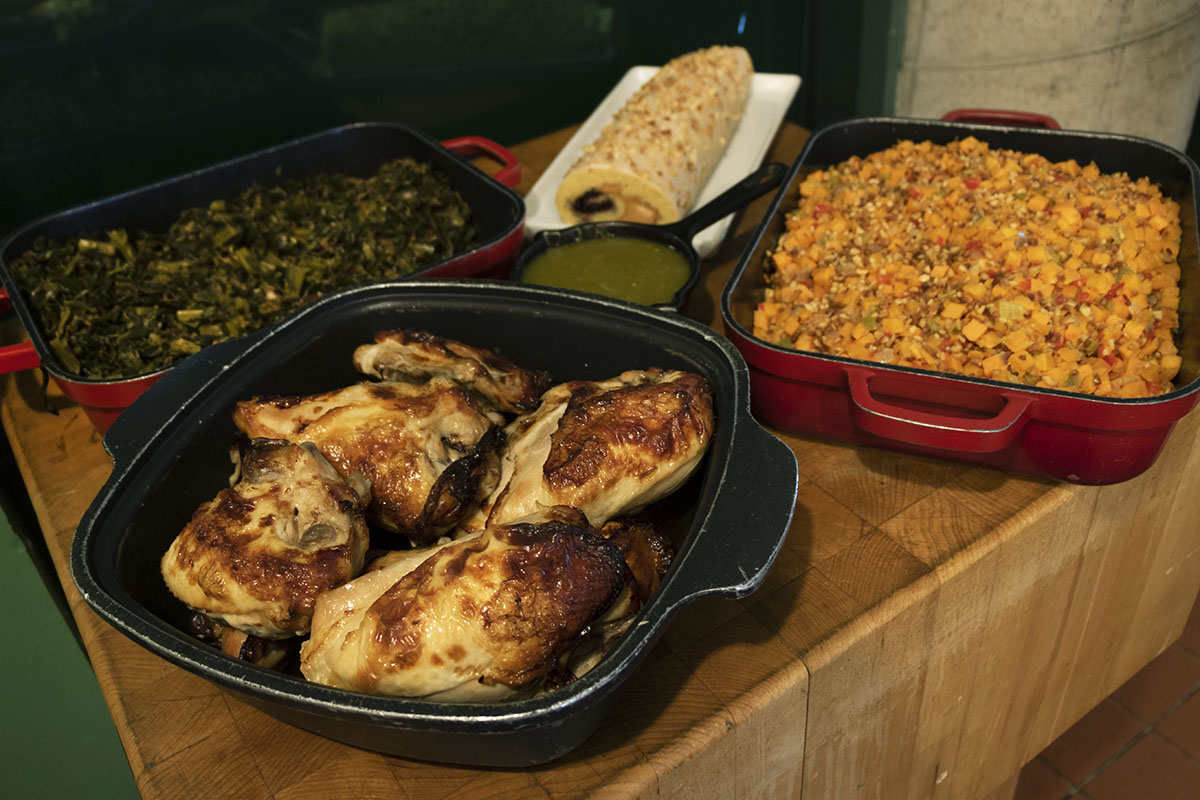
Spring offerings from George Washington Carver's recipes at A Taste of History.
While our new recipes at Plum Market Kitchen are inspired by Carver, with modern adaptations, our new offerings in A Taste of History are more directly drawn from Carver’s own recipes and the ingredients he used. Spring offerings at A Taste of History include the following—click through for recipes to try at home.
- Brined and Roasted Chicken
- Tomato Chili Sauce
- Sweet Potato Hash
- Collard Greens with Smoked Turkey
- Peanut Roll Cake with Jelly
Learn More
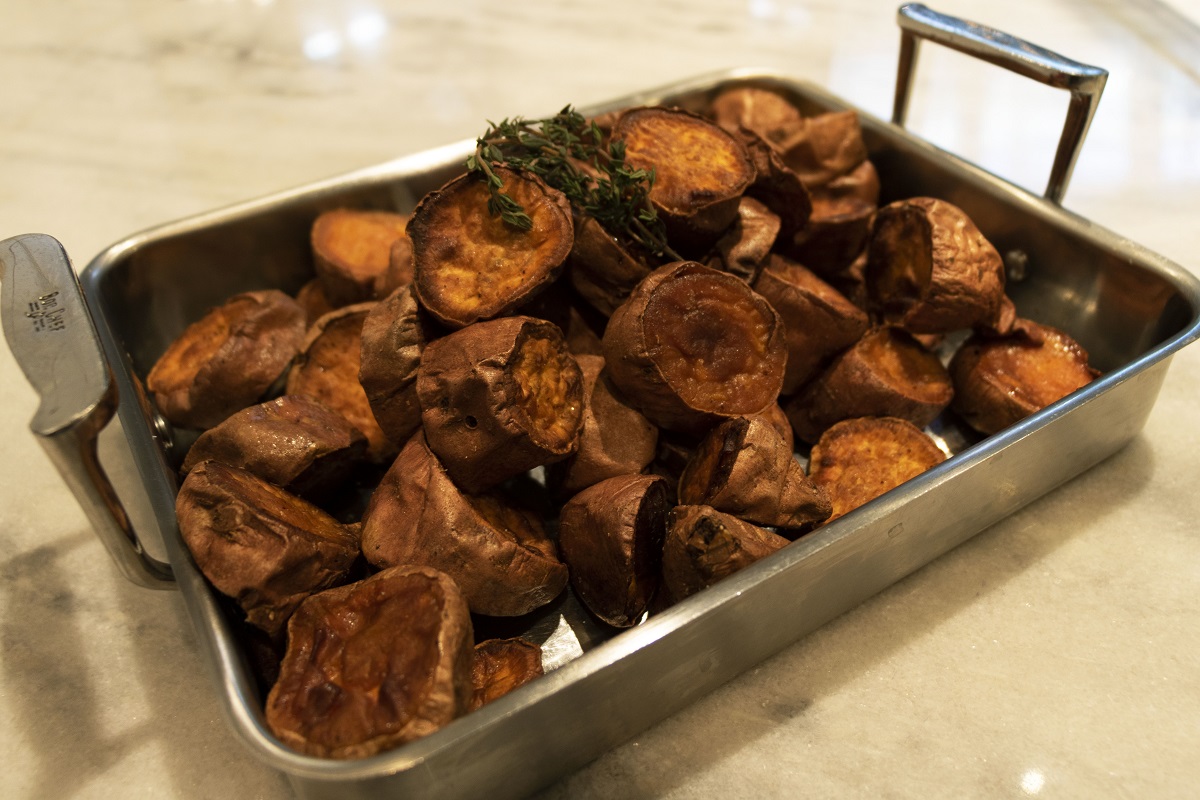
Farmhouse Roasted Sweet Potatoes at Plum Market Kitchen.
If you’d like to further explore the life and work of George Washington Carver, issues surrounding food security, historic recipes, or dining at The Henry Ford, here are some additional resources across our website:
- Take a closer look at Black empowerment through Black education with the microscope used by agricultural scientist George Washington Carver during his tenure at the Tuskegee Institute in Alabama.
- Throughout Carver’s life, he balanced two interests and talents—the creative arts and the natural sciences. Find out how each influenced the other.
- Learn more about the history of the George Washington Carver Cabin in Greenfield Village.
- Explore artifacts, photographs, letters, and other items related to Carver in our Digital Collections.
- Food security links nutritious food to individual and community health. Explore this concept through the collections of The Henry Ford in this blog post, which includes Carver’s work.
- Find out what a food soldier is, as well as how food and nutrition relate to issues of institutional racism and equity for African Americans.
- Explore historic cookbooks and recipes from our collections.
- Get up-to-date information about dining options in Henry Ford Museum of American Innovation and Greenfield Village.
Eric Schilbe is Executive Sous Chef at The Henry Ford. Debra A. Reid is Curator of Agriculture and the Environment at The Henry Ford.
Keywords | |
|---|---|
Series | |
Themes |
